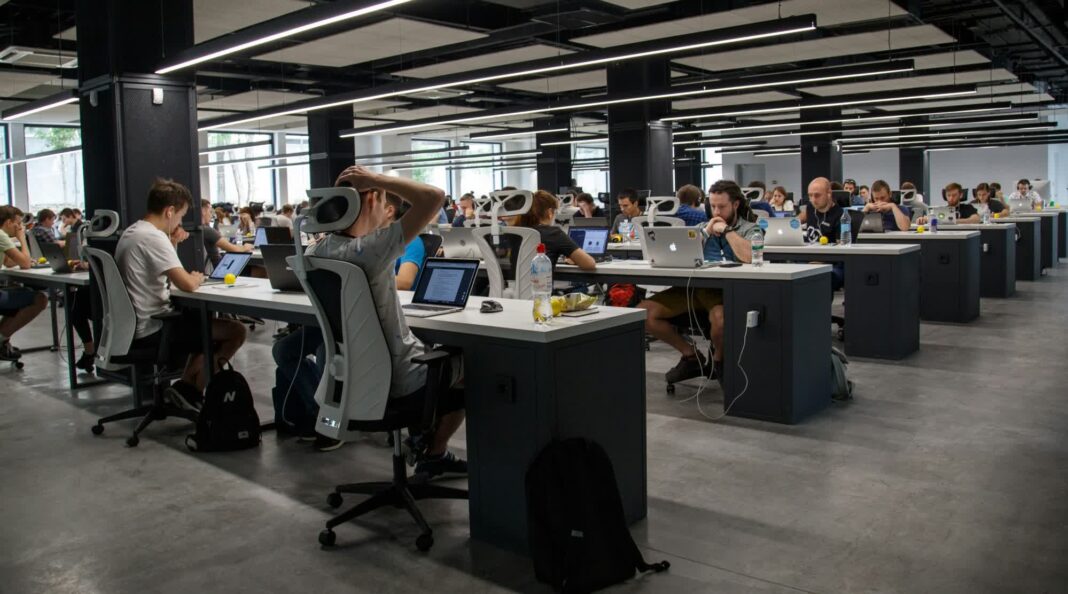Friday, June 6, 2025

As the 2026 FIFA World Cup approaches, the excitement surrounding the event is palpable, with the US, Canada, and Mexico preparing to co-host the prestigious tournament. However, new US travel and immigration policies are raising concerns about the ease and safety of attending the tournament for international fans. With rising immigration restrictions, heightened security measures, and uncertainty around visa access, many are questioning whether these policies will deter soccer fans from around the world, particularly those from nations with strained relations with the US. The potential impact of these policies could overshadow the global unity and inclusivity that the World Cup typically represents, creating an atmosphere of uncertainty ahead of the event.
The 2026 FIFA World Cup is rapidly approaching, and with it comes a whirlwind of excitement and anticipation. The United States, Canada, and Mexico are set to co-host this prestigious global event, and millions of soccer fans from all over the world are expected to flock to the host cities. However, a troubling backdrop of rising immigration restrictions, security crackdowns, and political tension is creating uncertainty about the ease and safety of attending the tournament in the US
Since the inauguration of President Donald Trump, the US has experienced a significant uptick in border crackdowns, new visa restrictions, and a growing sense of fear surrounding the potential for detention. In the first five months of his presidency, there were numerous reports of foreign nationals being held in detention for extended periods. This has led to concerns that international fans may face obstacles and delays when attempting to travel to the US for the 2026 World Cup.
As the US prepares to host 11 of the 16 World Cup matches, the question arises: will international fans feel welcome in a country with such stringent immigration policies? Despite FIFA President Gianni Infantino’s assurances that fans will be welcomed to the tournament, many human rights organizations, such as Human Rights Watch, have expressed deep concerns over the potential impact of the US’s current immigration stance.
The 2026 World Cup will not only be a sporting spectacle but also a massive logistical challenge, with an estimated 6.5 million people expected to attend the event across the three host countries. The US has also planned several other major international events leading up to and following the World Cup, including the Ryder Cup and the Los Angeles Olympics in 2028. However, amidst this excitement, a darker shadow of geopolitical tension looms.
The strained diplomatic relationships between the US and several countries could make travel to the U.S. more complicated, particularly for fans from nations that are at odds with US policies. One example is Iran, whose national soccer team was among the first to qualify for the World Cup. The two countries have been embroiled in a longstanding dispute over Iran’s nuclear program, and President Trump’s recent signing of an executive order banning nationals from a dozen countries, including Iran, from entering the US only exacerbates the issue. While the ban makes exceptions for athletes and coaches, it does not extend to fans, further complicating matters for soccer supporters looking to attend the tournament.
Human Rights Watch has written an open letter to FIFA, urging the organization to reconsider its decision to hold the World Cup in the US The letter highlights various US immigration policies that could negatively affect international fans, including the detainment of international students, deportation of third-country nationals, and bans on refugees. These measures, according to the advocacy group, threaten to undermine the spirit of unity that the World Cup is meant to foster.
In addition, Amnesty International has also voiced its concerns, emphasizing the potential risks faced by both players and fans traveling to the US The organization warns that the current political climate could deter travelers from attending the World Cup, especially those from countries with strained relations with the US This could lead to a decrease in the number of international fans attending the tournament, potentially impacting ticket sales, tourism, and the overall success of the event.
When FIFA awarded the bid to host the World Cup to the US, Mexico, and Canada, the decision was celebrated as a triumph for soccer in North America. It was seen as an opportunity to grow the sport in a region dominated by other major sports like American football, basketball, and baseball. The tournament was viewed as a chance to bring people together and strengthen the political and economic bonds between the three countries. However, the rising tensions over trade policies, the US’s controversial immigration laws, and Trump’s rhetoric on border security have complicated this vision.
At the heart of the issue is the stark contrast between FIFA’s message of inclusion and the US’s growing reputation for exclusionary policies. FIFA has made it clear that the World Cup is meant to be a global event, with fans from all corners of the globe coming together to celebrate the game. Yet, the current climate in the US raises serious questions about whether international fans will feel safe and welcomed.
Despite these concerns, many still believe that the 2026 World Cup will be a success. Alan Rothenberg, the former president of US Soccer who oversaw the 1994 World Cup, has expressed confidence that fans will still come. The success of previous World Cups, such as those held in Russia and Qatar, which despite facing their own controversies, attracted millions of attendees. According to Rothenberg, the global appeal of the World Cup will ultimately outweigh any concerns about political issues or visa restrictions.
However, this optimistic view may not resonate with everyone. As preparations for the tournament continue, it remains to be seen whether the US will be able to reconcile its domestic policies with the international spirit of the World Cup. With heightened security concerns, ongoing political tensions, and the threat of travel restrictions, the future of the 2026 World Cup could depend on whether FIFA and US authorities can strike a balance between security and accessibility for international fans.
As the 2026 FIFA World Cup nears, US, Canada, and Mexico face uncertainty due to new US travel and immigration policies, which may hinder international fans’ ability to attend. Rising visa restrictions and political tensions are fueling concerns about accessibility for soccer supporters worldwide.
Ultimately, the 2026 World Cup holds the potential to be a historic and transformative event for soccer in North America. However, it also risks becoming a symbol of the growing divide between the ideals of international cooperation and the realities of national policies. The world will be watching closely to see if the US can fulfill its promise to be a welcoming host for one of the most prestigious sports tournaments in the world.



